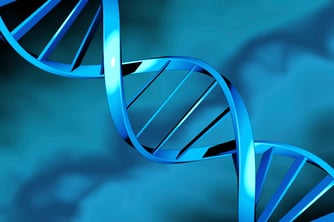Originally published : Wed, January 11, 2017 @ 8:59 PM
 Updated : Mon, January 23, 2017 @ 4:27 PM
Updated : Mon, January 23, 2017 @ 4:27 PM
Nature versus nurture. It’s a tale as old as time.
When Craig Venter made the comment after the human genome sequence was published, that “the behavior, character and physiology of individual human beings” aren’t wholly determined by their genetic make-up, and that our “environments are critical” – he wasn’t wrong. What Venter was saying was that there weren’t nearly enough genes to hard-wire every human trait, but he was also implying that if there were three or four times as many, this might be possible. It turns out that even this many wouldnt be enough - but Venter’s hypothesis does however lead to a good dialogue of what role one’s genetic make-up predetermines their way of life.
Charles Darwin may not have touched on the role of evolution when he published “On The Origin of Species”, but that didn’t stop people from later on trying to apply his findings to society in a sinister manner.
“Survival of the fittest” was born from Herbert Spencer, who thought humans could “learn from nature and improve themselves by marginalizing and discarding their weakest members”. Cesare Lombroso and Paul Broca believed criminals and the mentally ill were “physiologically different from ordinary law-abiding citizens, and that their poor character was inherited and immutable”. Robert Knox even developed a theory that argued mankind was a genus, and that the different races were species of “greater or lesser sophistication”.
The above have now all been proven to be untrue, but that didn't stop the flawed teachings causing suffering and pain.
One such example was the theory of eugenics – in which one’s inheritance can be improved by selective breeding. The theory started out as a means to producing “gifted elite castes by encouraging ‘eugenic marriages’ between people of good health and high intelligence”, however in application its implications became horrifying - it led to a rise in forced sterilisation, for those that were seen as “genetically unfit”.
As with many subjects, a little knowledge can be dangerous and while genes do play an important role on many health and behavior aspects of an individual, our environmental and societal context also play significant roles.
So let us learn from the mistakes of the past and always strive to be excellent to on another.
Reference: Henderson, Mark, Joanne Baker, and A. J. Crilly. "Chapter 11 - Genetic Determinism." 100 Most Important Science Ideas: Key Concepts in Genetics, Physics and Mathematics.

